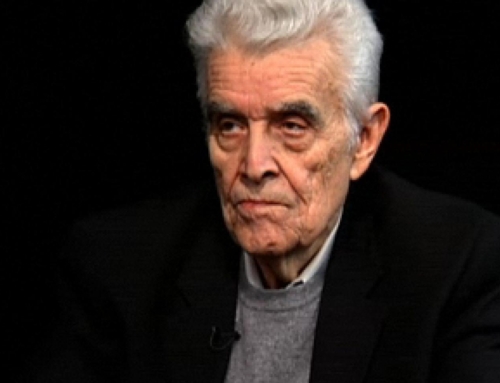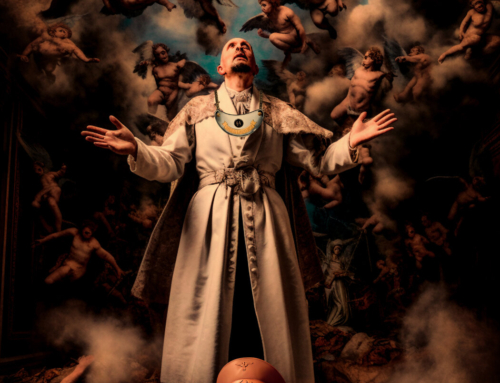One of the Catholic buzzwords at the moment seems to be “Mission”. So this recent quote is typical: “Synodality is essentially missionary and vice versa mission is always synodal.” Apart from the incomprehensible English usage (“missionary” is a noun not an adjective. “Missional” is the word they were looking for) Anyway, in the usual word salad that is put together by synodal Catholic–“Mission” seems to be the tomato.
This assumes we actually know what “Mission” means and agree not only on the meaning of he word, but on the method of mission. So what do the Synodal Catholics mean by “mission”? I suspect it is all tied in with what Fr Arrupe the godfather of the Jesuit revolution in the church means by mission. By the way, if you want to understand Fr Arrupe and the Jesuit revolution you ought to read a book called The Synodal Pope by Jean Pierre Moreau and published by TAN books. Moreau has researched the radical Jesuit leader who was a primary influence on Pope Francis and chronicled the modernist, liberation-theology ideologies that drove him.
So what does “Mission” mean for contemporary synodal Catholics? It means liberation theology. It means not simply feeding the hungry, housing the homeless, caring for the environment, reaching out to the margins and being a warm, welcoming church, it also means challenging and changing the structures of economic, political and social injustice. That’s all well and good you might say, and “Of course that’s the mission of the Church.” Isn’t that what our Lord taught in Matthew 25 when he said “What you have done (or not) for the least of these you have done (or not) to me”?
There is no disagreement from me about the need for Catholics to do all these things, but allow me to quibble about terminology. These worthy projects: feeding the hungry, housing the homeless, working for justice etc. etc. are really part of the ministry of the church. They are the corporal and spiritual works of mercy. The mission of the church is something else.
So what is he mission of the church? This is also found in Matthew’s gospel as it happens. In Matthew 28–a few chapters after the famous judgement of sheep and goats I just referenced– we find this:
Then the eleven disciples went to Galilee, to the mountain where Jesus had told them to go. 17 When they saw him, they worshiped him; but some doubted. 18 Then Jesus came to them and said, “All authority in heaven and on earth has been given to me. 19 Therefore go and make disciples of all nations, baptizing them in the name of the Father and of the Son and of the Holy Spirit, 20 and teaching them to obey everything I have commanded you. And surely I am with you always, to the very end of the age.”
This is actually called, um hello? The Great Commission. What could be clearer? The mission of the church is evangelization and by “evangelization” I don’t mean giving people lunch. I mean sharing the faith, defending the faith and calling people to repentance and faith in Our Lord Jesus Christ’s saving work and being baptized and becoming full members of Christ’s One, Holy, Catholic and Apostolic faith.
But this Great Commission has been largely ignored, mocked, and dismissed by the modernists. Embarrassed by the call to conversion, they have substituted something which is less controversial, and quite honestly, much easier and acceptable to the secular world. You see, everybody likes it when Catholics feed he hungry, educate the ignorant, house he homeless, visit the sick and engage in all the corporal works of mercy. People like that. They will even give their money to support that kind of work. What they don’t so much like is when Catholics not only engage in ministry, but also engage in mission.
When I have written on this theme before some folks have jumped in accusing me of not caring for the poor and denigrating social action. Not true. I’m all in favor of Catholics being actively and positively engaged in ministry. What I criticize is substituting ministry for mission or pretending that ministry is the only thing we should be engaged in.
This mistake of categories is ultimately ruinous for the church. Here’s why: when we substitute ministry for mission we soon forget the need for mission entirely. (Witness the bishop to the Amazon who bragged some time ago that he hasn’t baptized anyone for decades)
I have not yet baptized any Indian and I will not” – Bishop Erwin Kräutler.
Why is this ruinous for the faith? For the deeper reason that people are not stupid. They very quickly conclude that you don’t have to go to church to be a nice, kind, social justice person. Indeed, you don’t need to be a Christian or even believe in God to be a nice, kind, tolerant, charitable person. This is why churches are emptying.
While this is a logical conclusion for many people what I would like to know is how many of those people who have abandoned the faith because “You don’t have to believe in God to be a good person” actually go ahead and give generously to charitable organizations, volunteer at the soup kitchen or give their lives in ministry to the poor?
What we need as Catholics is not only a vibrant approach to ministry, but a vibrant approach to mission. One of the inspiring aspects of my recent visit to World Villages for Children in Mexico. (See my blog posts here and here.) is that the Sisters of Mary–following the example of Ven. Al Schwartz–actively combine mission and ministry. The sisters give their lives serving the children from the poorest communities in Mexico. They live with the boys and girls, educate them, provide food, shelter and vocational training, but they also catechize the children, lead them in worship, form their devotional lives and transform them from despair to hope. Put simply, they are saving souls as well as serving the children of poverty.
This is what transforms the church, transforms our lives, transforms our families, transforms our world. It is a miracle in action: Grace at the grass roots level.
Learn more about the amazing life of Ven. Aloysius Schwartz in Kevin Wells’ book Priest and Beggar







Leave A Comment
You must be logged in to post a comment.